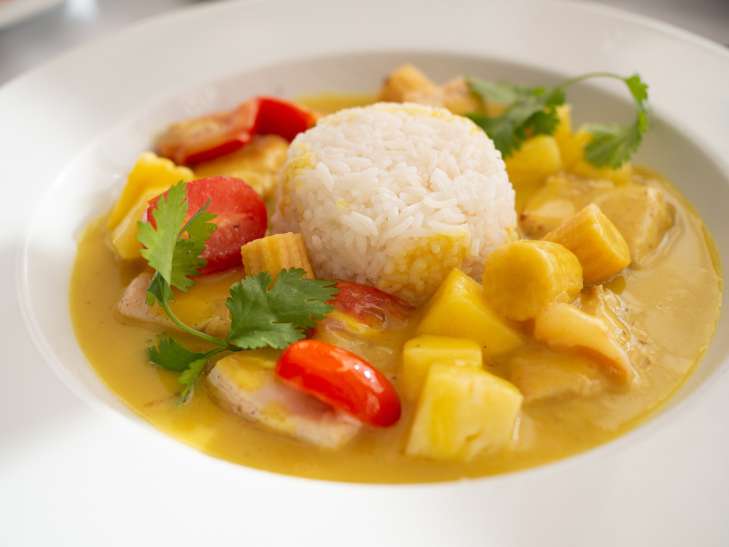The main ingredient in curry is turmeric, which contains the substance curcumin.
What are the benefits of curry
The curry mixture contains a set of vitamins that is most valuable for the body: A, B1, B2, B12, C, E, K and minerals: magnesium, sodium, calcium, potassium, zinc, iron.
Curry helps strengthen the immune system, prevents degenerative changes in the brain (including preventing the development of Alzheimer's disease) and slows down the growth of atypical cells.

Curcumin also promotes tissue regeneration.
Curry has strengthening, tonic and antibacterial properties.
The powder is antifungal and antimicrobial.
Curry helps cure skin diseases: psoriasis, eczema and acne.
The spice speeds up metabolism, which means it promotes weight loss.
How to eat curry
A dish of rice, which is topped with curry sauce containing meat, vegetables, potatoes, etc.
This dish is eaten not with chopsticks, but with regular spoons.
Curry came to Japan about 150 years ago, and was served as an unusual English cuisine, since India was a British colony at that time.
Who should not eat Kari
The seasoning is contraindicated for pregnant women and children.
Due to the presence of pungent components, it should be used with caution by people with stomach diseases.
Curry is not recommended on the eve of surgery because it thins the blood and prevents clotting.











